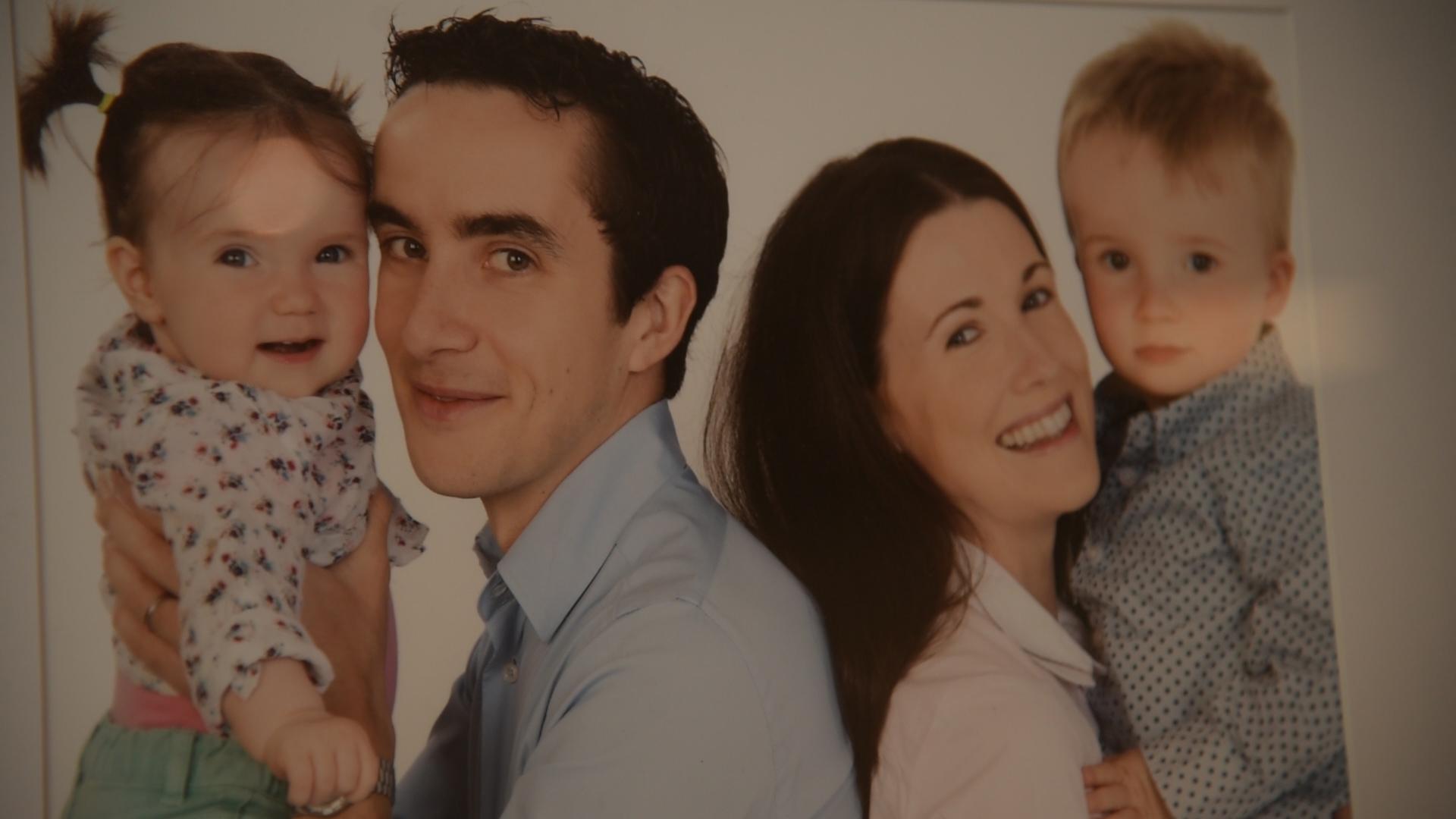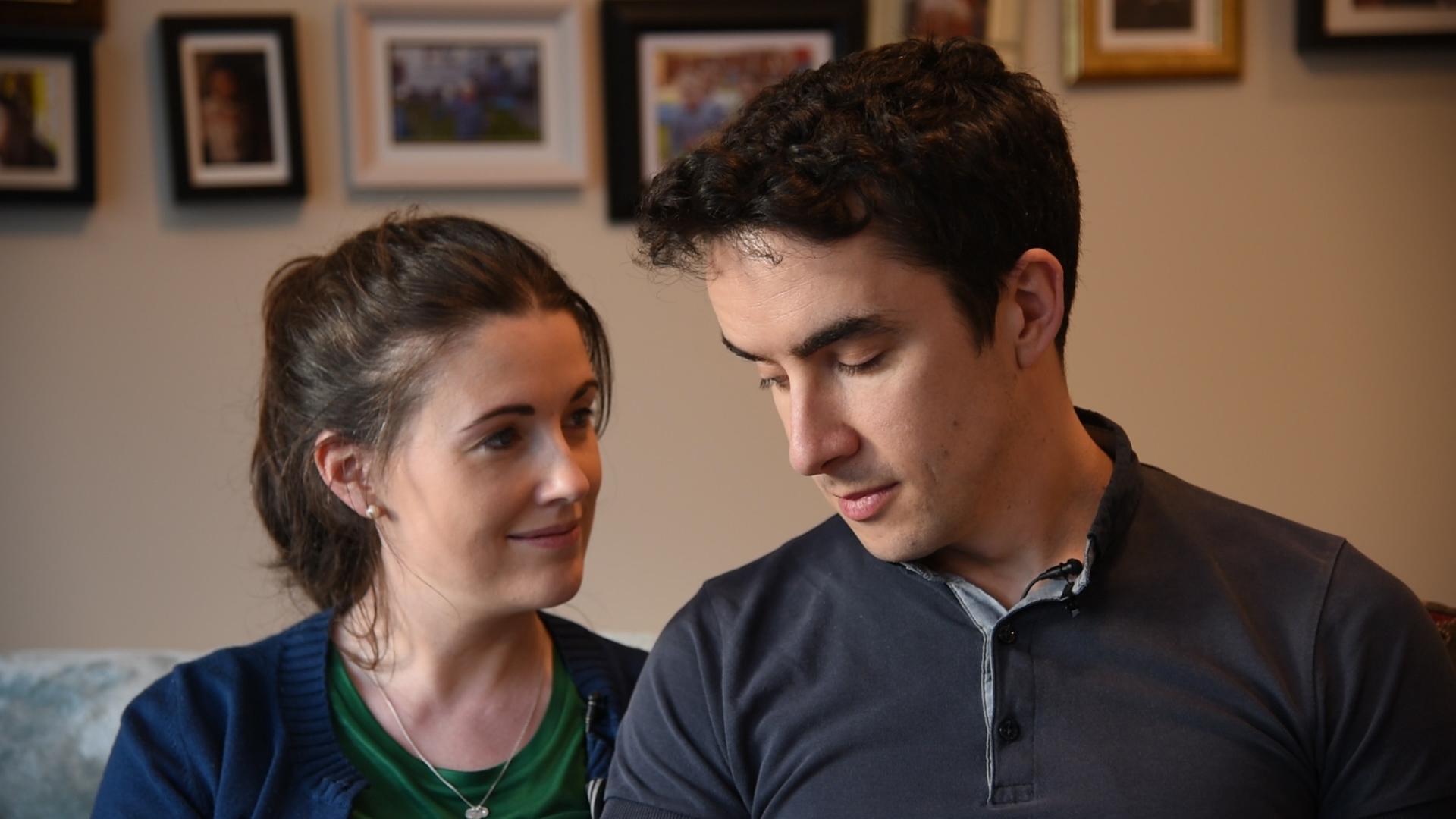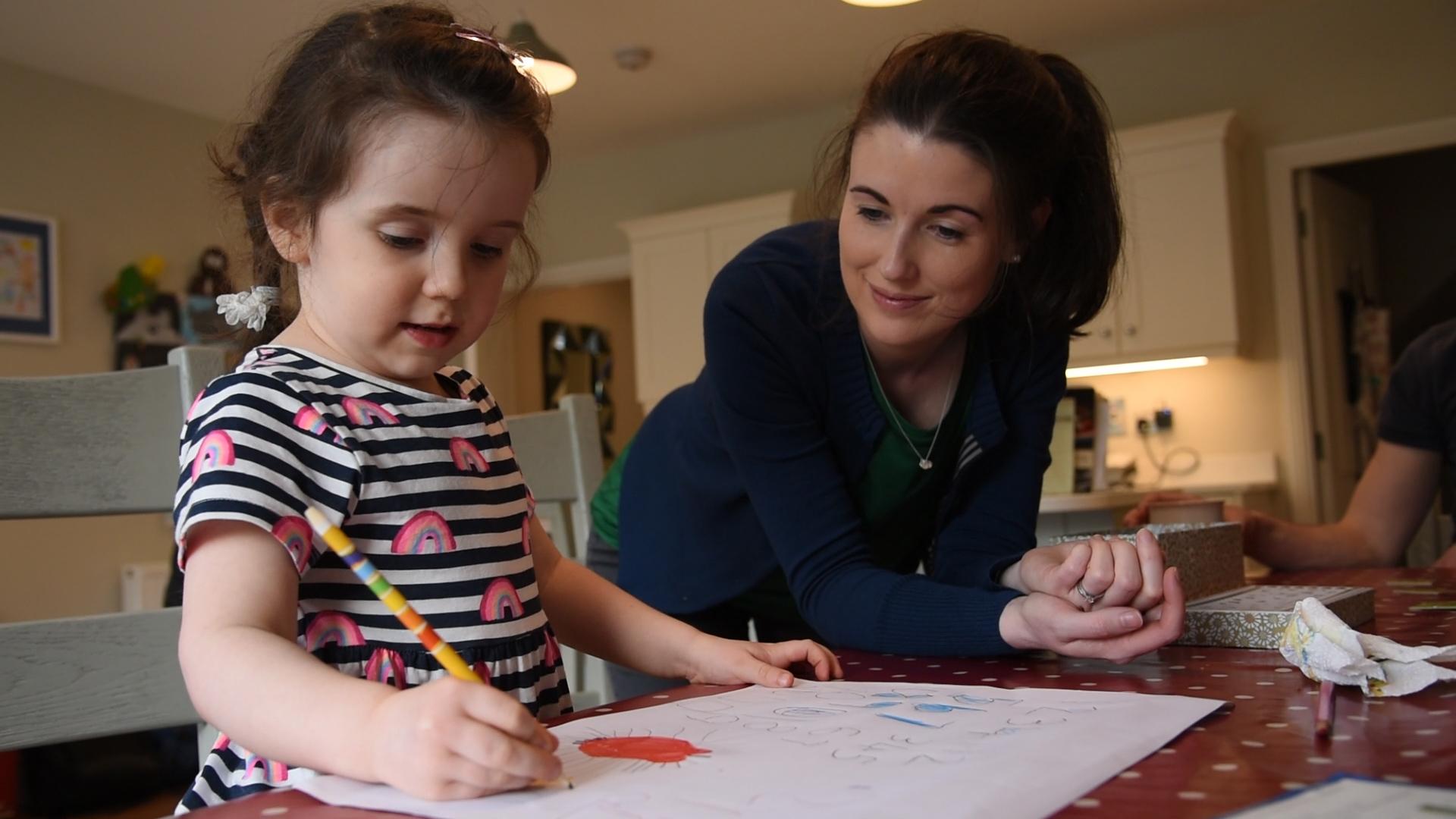'We sat in the airport crying': Irish couple describe travelling to England to abort terminal pregnancy
The country’s strict abortion laws meant the couple couldn’t end the pregnancy in Ireland
When Caroline and Michael McCarthy were told at their 20-week pregnancy scan that their third child wouldn’t survive outside the womb, they were devastated.
They learnt that their baby’s kidneys hadn’t developed in the first weeks of pregnancy, a condition called bilateral renal agenesis. As a result, there was no amniotic fluid and the baby had no chance of survival after birth.
The couple had to make a choice: carry the baby to term, or seek a termination.
Under Ireland’s strict laws, abortion is illegal in almost every instance, including when a foetus has received a fatal diagnosis. They knew that if they decided to end the pregnancy, they would have to travel to England – a journey thousands of Irish women make every year.
“It was a real kind of limbo,” Caroline told The Independent. “You’re grieving for this baby, but not only is the baby still alive, the baby is actually growing and you look pregnant.”
Realising the emotional toll carrying the baby to term would take on the couple, they decided to book an appointment at Liverpool Women’s Hospital. The first available slot was in four weeks’ time.

On New Year’s Day the couple left their young children, Michael and Rachel, at home with Caroline’s mother, and boarded the flight to England.
After spending a night at a “strange little” hotel, the couple checked into the hospital’s Honeysuckle unit, which provides specialist bereavement care for pregnant women and their partners.
Since Caroline was 23 weeks and four days pregnant, their baby had to have potassium chloride injected into its heart before labour was induced.
The policy applies to any pregnancy over 22 weeks’ gestation and ensures the foetus is not born initially showing signs of life. While Michael and Caroline were relieved that the process meant their baby wouldn’t have to experience a stressful labour, the injection proved a particularly traumatic part of the procedure.
“I felt the needle go in and I could feel the baby moving. And then the baby stopped moving and we knew the baby was dead,” said Caroline. “It was awful, those few minutes.”
The couple were allocated a private room in the Honeysuckle unit as Caroline’s labour was induced, and there they waited for the birth, supporting each other through their grief.
Michael remembers the tiny cot and the motif on a poster which hung on the wall: “There is no footprint so small that it does not leave an imprint on this world.”

John George McCarthy was born at 3:34am on Wednesday 3 January 2018.
After spending a day with their “perfect” son, taking photos and singing him songs, the couple said their goodbyes to John and made their way to the airport for an evening flight to Dublin.
“It was all the more surreal the fact that we spent three hours just sitting in a departure lounge... crying,” said Caroline. “I was still bleeding quite heavily… and I was just really looking forward to getting into my own bed.”

Two weeks after their first journey to Liverpool for the birth of their son, the couple flew back to the city for his funeral, this time with extended family members.
Confronted with the tiny white coffin that held his son’s body, Michael was overcome with emotion.
“It’s almost as if you don’t have time to reckon on these things when you’re travelling over on the day of your son’s funeral,” he said. “You’re worried about the logistics of travelling and so on, when the moment actually comes… it’s almost a bit of a surprise.”
After the cremation, Caroline stored her son’s ashes safely in her hand luggage, and they made their way back to the airport for their flight back to Dublin. Going through security, she saw her bag pulled to one side for checking by staff.
“At this stage I started to feel really angry,” remembers Caroline. She implored them to be careful with the bag as it contained her baby’s ashes, and was surprised when they didn’t flinch.
“The strangest thing about it to be honest, was they didn’t seem taken aback at all, as if it happens all the time.”

The McCarthys’ private tragedy coincided with the Irish government’s announcement that a referendum on the country’s abortion laws would take place later in the year.
“Over the weeks that followed I really started to think it really was just awful that we had to go through that over there,” said Michael. “Not having to travel would have given me more time to prepare for the grief.”
Caroline wonders if she would have been able to have the abortion sooner had she been able to receive care in Ireland.
“We probably wouldn’t have needed the injection of potassium because there wouldn’t have been that couple of weeks’ wait,” she said.
Ireland goes to the polls on 25 May to vote on whether to repeal the eighth amendment.
A “Yes” vote would allow for the government to legislate on terminations, paving the way for women to receive treatment at home.
If Ireland votes “No”, the eighth amendment will remain in place.
You can follow all the developments in the debate, as well as the latest polls, on The Independent’s live blog
Join our commenting forum
Join thought-provoking conversations, follow other Independent readers and see their replies
Comments
Bookmark popover
Removed from bookmarks